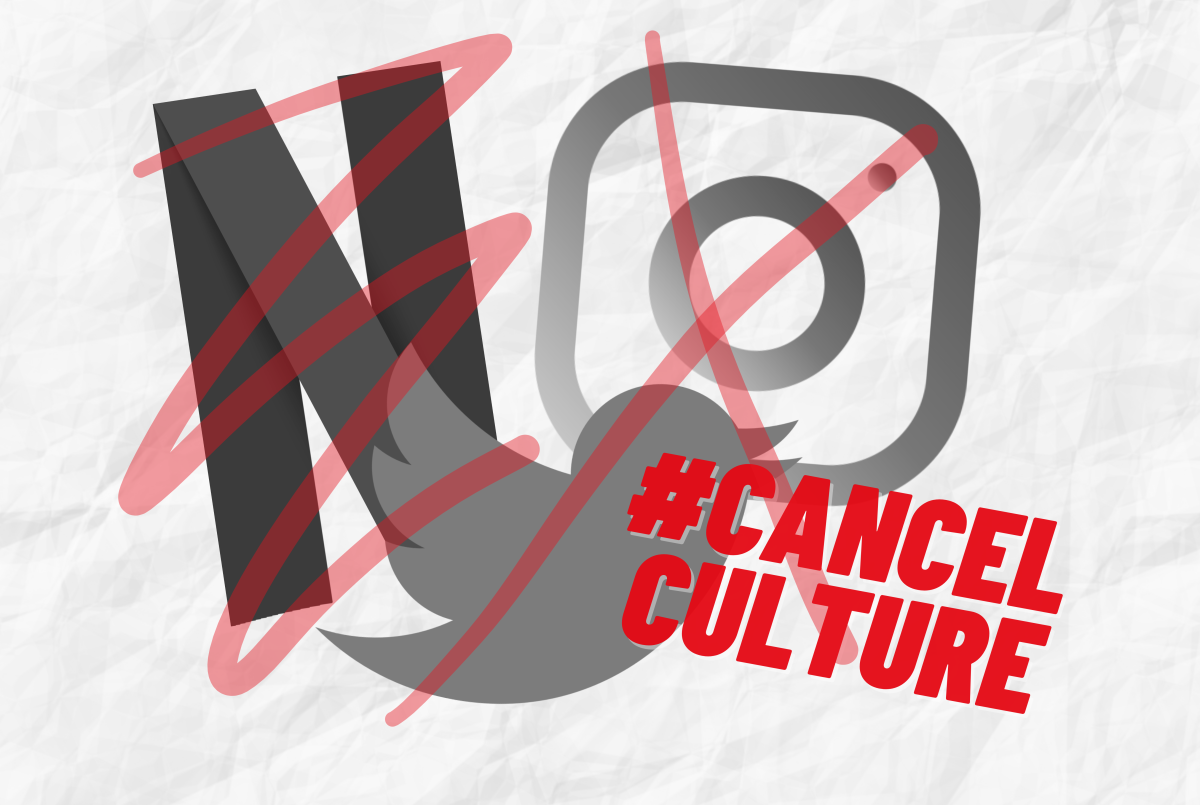Cancel culture is doing more harm than good
Cancel culture is a new concept, but it has quickly grown to become part of our daily lives. Originally stemming from Black Twitter, cancel culture is essentially a digital modern-day boycott where people withdraw their support for a person or company after they have said or done something offensive or wrong. Over the years, we have seen numerous people and companies on the chopping block, receiving criticism from everyone regarding their actions. But cancel culture is not effective.
Holding a person or a company accountable for their wrongdoings is completely normal. In fact, it is what helps people and companies understand the error of their actions and elicit change. It gives people the opportunity to understand why their actions are harmful and allows them to grow to be more inclusive and mindful.
However, cancel culture feeds into the idea that no matter what they do to remedy the situation, either through a heartfelt apology or withdrawing from the public eye to reflect and educate, they will always be reminded of their harmful actions. With a mindset like that, it leaves no opportunity for people to learn, understand and grow from their mistakes.
As makeup artist Matt Bernstein pointed out in his Instagram post, the punishment does not fit the crime. For both people who do not regret spreading dangerous ideologies and people who are genuinely sorry for ignorant posts, the punishment is the same. Cancel culture treats everyone who made mistakes the same way on the same platform, equating an ignorant comment with a hate crime. In real life, these would not even be considered for the same punishment.
I believe that the original concept of cancel culture was good-natured. People wanted powerful individuals to step down from their positions because of the harm they caused others from their remarks or actions. As Lisa Nakamura, Ph.D., professor of American culture at the University of Michigan, states in a New York Times article, “It’s a cultural boycott. It’s an agreement not to amplify, signal boost, give money to. People talk about the attention economy — when you deprive someone of your attention, you’re depriving them of a livelihood.”
But that original concept rarely works since “canceled” powerful people continue to have platforms. For example, Woody Allen continued to make movies despite being accused of sexual assault. Mel Gibson earned Academy Award nominations despite spouting anti-semetic slurs and beliefs. U.S. President Donald Trump won the 2016 election despite spitting out hateful rhetoric and beliefs.
The idea of “canceling” someone does not make them learn from their mistakes, it just shakes their feathers. In the past few years, famous people and companies have been canceled numerous times, yet they still have large followings. This demonstrates the ineffectiveness of cancel culture and how “de-platforming” companies and celebrities does nothing to make them understand the harm behind their remarks or actions. It essentially stunts their opportunity to grow.
The original concept of cancel culture became lost in translation by people attempting to purify themselves by consistently going after every person accused of wrongdoings to make themselves look better in comparison. As Black feminist Loretta Ross pointed out in a New York Times column, cancel culture has done nothing to properly justify the criticisms of dangerous individuals, but rather serves to score points for the “self-appointed guardians of political purity.”
Just because the idea of cancel culture is ineffective does not mean that we should abandon our efforts of achieving social justice. Everyone is human, and everyone makes mistakes in the past, but that does not mean that we should be constantly judged for them. We are capable of acknowledging our wrongdoings and making efforts to become better people. We need to focus our efforts on affairs that truly need our attention.















































